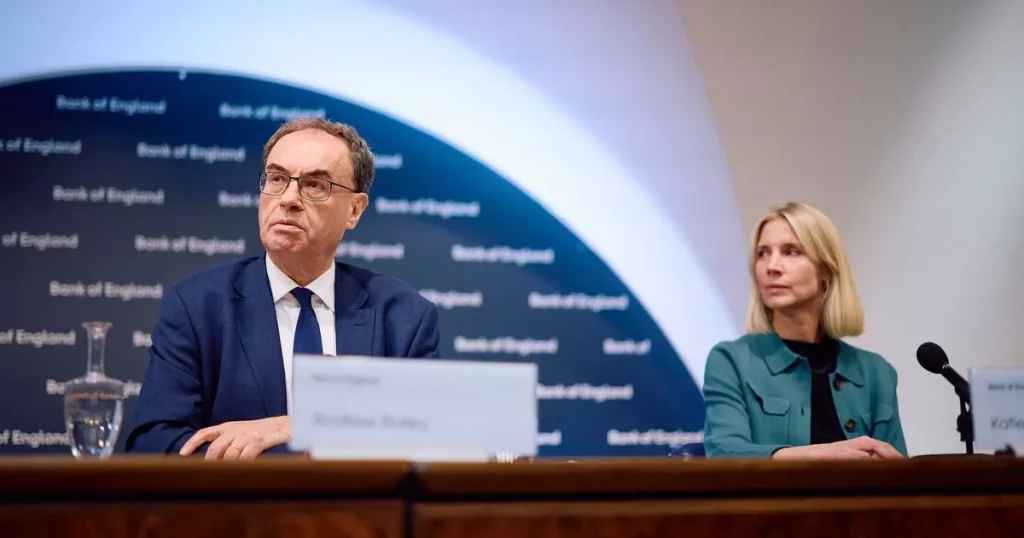Nearly 4.5m households are facing a mortgage timebomb, warns Bank of England

The Bank of England has warned that approximately 4.4 million UK households could face increases in their mortgage repayments over the next three years.
The Bank's Financial Policy Committee (FPC) stated that this will include £500-per-month hikes for the mortgages of around 420,000 households. Additionally, between one million and 1.5 million people are set to experience a second increase in rates, having already fixed to a higher price since interest rates began to rise in the second half of 2021.
It is expected that about 31% of all mortgages, or 2.7 million people, will refinance onto a rate of more than 3% for the first time before the final quarter of 2027. However, the central bank emphasised that UK lenders remain in a strong position to support households and businesses, even if the economic backdrop deteriorates.
The Bank's latest Financial Stability Report revealed that most households have already seen an increase in their mortgage rates since borrowing costs started to rise significantly. After sharp rises in 2022 and 2023, interest rates began to fall from a 16-year-high of 5.25% earlier this year, with the central bank voting twice to cut the base rate in recent months, bringing it down to 4.75%.
About 37% of households with mortgages have not yet fixed to a new rate since interest rates began to rise in the second half of 2021. A typical household rolling off a fixed-rate mortgage in the next two years is due to face a jump of around £146-a-month, the report said – down on the last projection of £180 in June.
According to estimates, around 27% of mortgage holders, amounting to some 2.4 million individuals, could anticipate a decrease in their monthly payments before the end of 2027, having already faced rate rises. Amid this backdrop, the central bank has highlighted an escalation in the overall risk landscape for both the economy and the financial sector over the past six months, attributed in part to a wave of newly elected governments worldwide.
The Bank also sounded the alarm on increasing risks to the financial system from warfare, trading friction, and cyber threats, noting that growing geopolitical tensions present a "significant" concern for banking institutions and the broader framework of financial stability. In a written statement, officials remarked: "Following elections in many countries, a range of macroeconomic and financial policies may change under newly-elected governments."
During a survey polling finance entities like banks and asset managers, it was found that "the proportion of those citing geopolitical risks reached its highest level" ever recorded by such an inquiry. All this comes against a backdrop of intensifying activity in Russia's war in Ukraine in recent weeks, enduring conflicts in the Middle East, and the potential for deteriorating relations between the US and China.
Moreover, President-elect Donald Trump of the US raised fresh worries about international trade wars after his commitment to impose unexpectedly substantial tariffs on imports from countries including Canada, Mexico, and China.
While the Bank’s recent report refrained from specifically mentioning Mr. Trump, it did point towards a "potential to increased global fragmentation" in trade amid a slew of other geopolitical challenges. The report highlighted that trade fragmentation not only "poses risks to UK financial stability" but could also "make it harder to achieve an orderly transition to net-zero greenhouse gas emissions".



